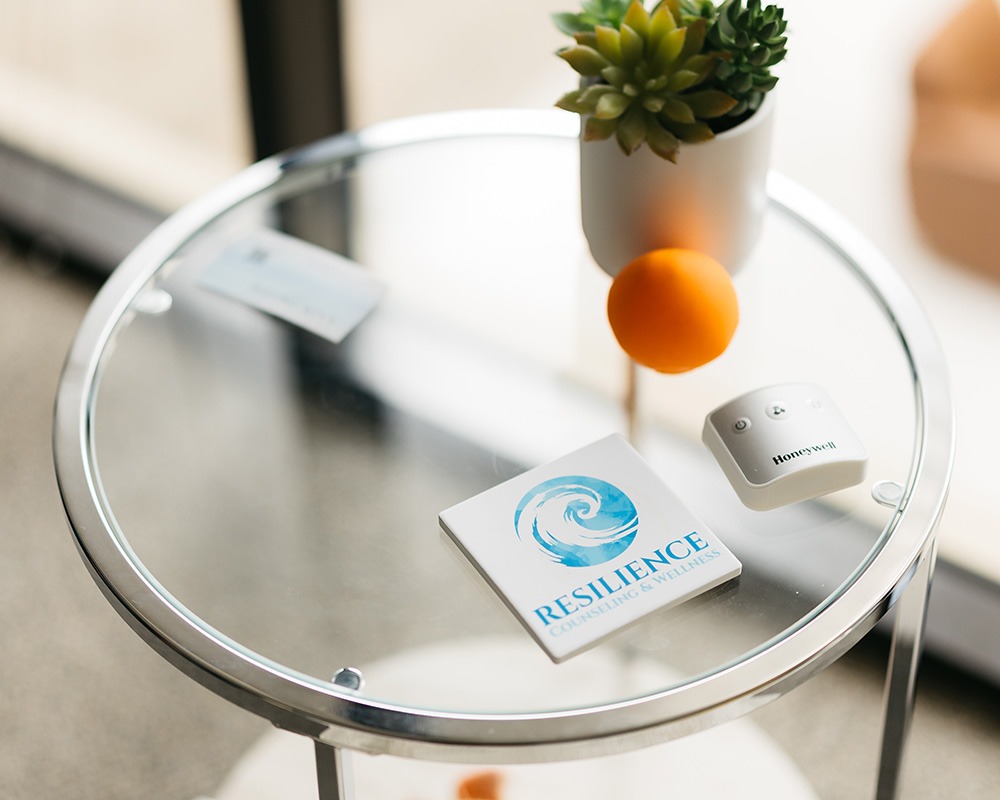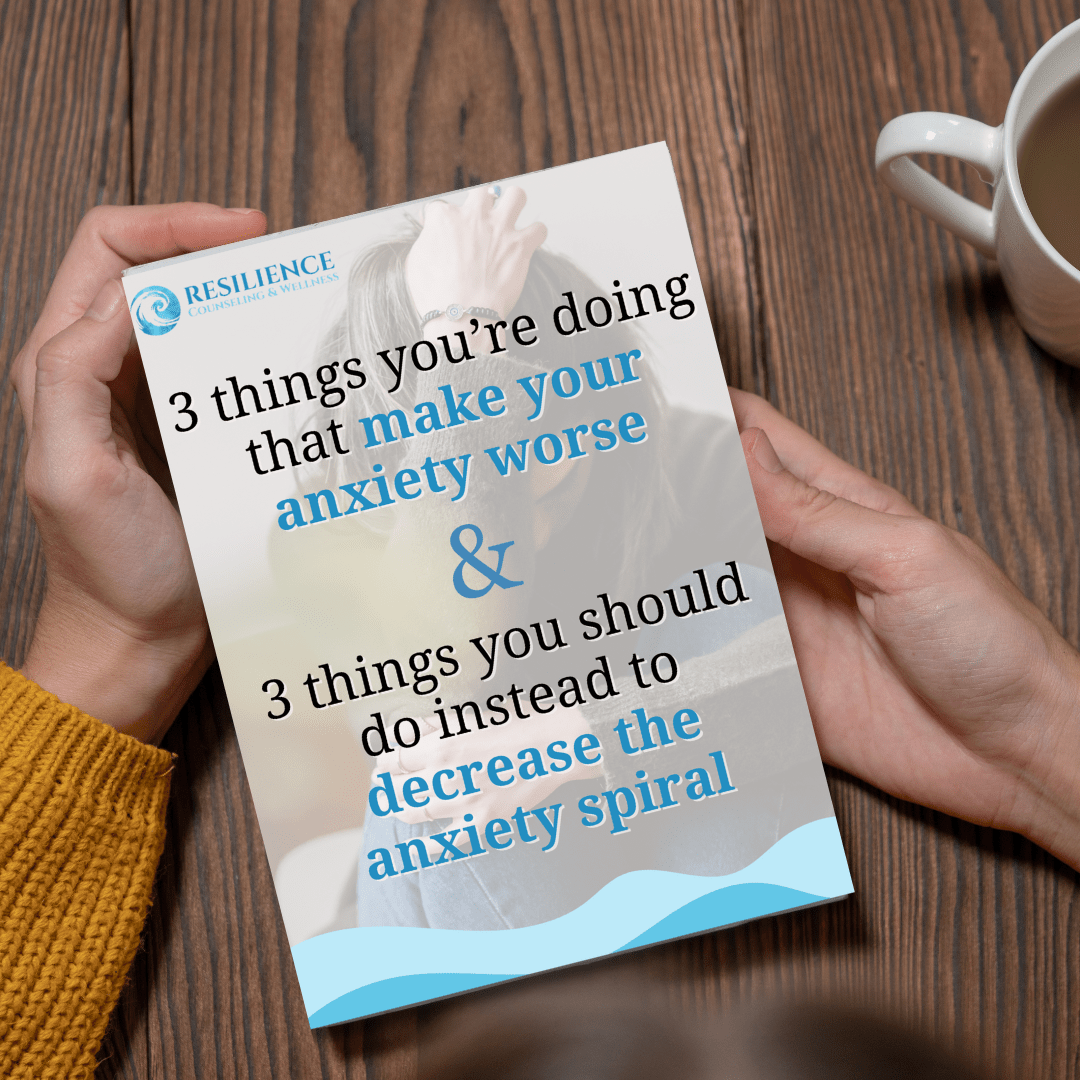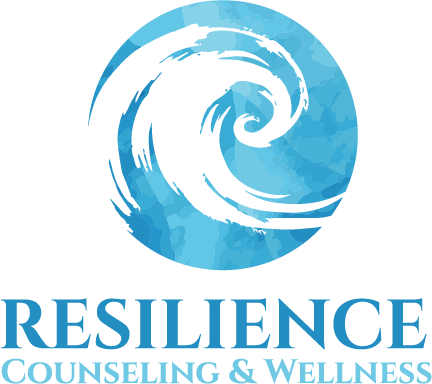Just talking about your anxiety isn’t going to get you very far. You need a holistic approach that addresses anxiety in your mind and body.
Dealing with anxiety symptoms is frustrating and can be downright debilitating. You’d love to resolve ruminating and obsessive thoughts, panic attacks, overwhelming fear, and uncertainty about the future. But you can’t just talk your way to feeling better. You need something more. You need one of our specialized anxiety therapists in Houston.
At Resilience Counseling and Wellness, we take a unique, clinically proven approach that goes beyond typical talk therapy. Every one of our anxiety therapists is trained in some type of somatic therapy, such as Eye Movement Desensitization and Reprocessing (EMDR), Acceptance and Commitment Therapy (ACT), Polyvagal Therapy, Somatic Experiencing (SE), or Accelerated Resolution Therapy (ART), which means we know how to help you overcome anxiety from the inside out. Because we provide holistic therapy techniques, you’ll get more out of your therapy sessions and help your nervous system and mind settle in ways you never thought possible.
In other words, you’ll beat anxiety in your mind and body quickly so you can live the life you want, free from the irritating frustrations of crippling anxiety.
8 Best Houston Anxiety Therapists








Ready to Begin?
3 Ways to Get Started Today!
Why choose us for anxiety counseling in Houston?
FAQs About Anxiety Therapy
So What is Somatic Therapy for Anxiety, Anyway?
Overcoming anxiety in your body and mind sounds great, right? But what in the world are we talking about when we say “somatic therapy for anxiety?”

Somatic therapy for anxiety, or any mental health concern, focuses on your mind-body connection and how anxiety shows up in your body. You see, your body holds onto things like unresolved trauma or chronic stress, whether you want it to or not. These negative emotions and body sensations literally get “trapped” in your body, resulting in unpleasant symptoms like panic attacks, chronic tension, and endless worrisome thoughts.
Somatic therapy, such as Eye Movement Desensitization and Reprocessing (EMDR), Acceptance and Commitment Therapy (ACT), Polyvagal Therapy, Somatic Experiencing (SE), or Accelerated Resolution Therapy (ART), when used by an experienced and trained anxiety therapist in Houston like those on our team, effectively eliminates your disturbing and uncomfortable anxiety symptoms from your body, helping you feel calmer and more in control of your thoughts and emotions.By focusing more on body sensations and less on the story or thoughts, we can unlock and release what’s stuck in our body, balancing our nervous system and improving our capacity for stress. And through our various somatic therapies, we can achieve this without any physical touch or contact.
Whether you partner with an anxiety therapist at our super-comfy and welcoming office in Houston or choose online anxiety therapy in Texas, you get top-notch, comprehensive anxiety therapy to help your whole self feel better rather than simply reducing your symptoms.
Is it Worth Seeing a Therapist for Anxiety?
Yes! Our anxiety therapists have seen the benefits firsthand.
At Resilience Counseling and Wellness, our treatment approach for anxiety and all mental health concerns goes beyond traditional Cognitive Behavioral and talk therapies. Why? Because we know what works.
We’ve worked with tons of clients that have been in therapy for years. And while talk therapy helped, many have needed something more effective to tackle their most stubborn symptoms. As therapists, we got tired of hitting that wall with regular old talk therapy and knew there had to be a better way to help our clients.
Somatic therapies have truly been a game-changer!

More Than a Conversation
Sure, talk therapy is beneficial. It certainly has its place in the therapy world and all of our therapists still use talk therapy, but talk therapy alone is not always going to yield the results you need. In fact, somatic therapy alone can be highly effective in calming your nervous system, increasing your capacity for stress, and allowing you to feel safe, grounded, and settled.
And when you combine it with talk therapy, you can make incredible strides in your mental health and wellness with our anxiety therapists in Houston.
That’s why every single clinician we hire must have some training in somatic therapy techniques. So, any one of our counselors for anxiety can help you reduce fear, have more balanced and rational thoughts, and regulate your emotions.
How Do I Know if I Have Anxiety?
It can be exhausting to feel out of control of your emotions. Anxiety can do that. But not everyone experiences anxiety the same way. Your symptoms are unique to you, which is why we take a skilled, understanding, holistic mind-body approach and specifically tailor your treatment to your needs.
Maybe you experience mental and physical symptoms that disrupt your body and mind regularly, like:
No matter your symptoms, we can help calm your nervous system and help you feel more regulated. Our anxiety therapists in Houston understand how anxiety impacts your body as well as your emotional brain and thinking brain. We specialize in helping you resolve the issues at their core and teach you skills and techniques to use in your everyday life to maintain your results.
You really CAN live a life that is more balanced and carefree!
What is the Most Effective Treatment for Anxiety?
There’s no single “best” kind of therapy for anxiety. Since each person’s experience of anxiety is different, it’s important that your anxiety treatment is tailored to your specific symptoms, background, preferences, and goals.
Different therapists use all kinds of different modalities, including cognitive behavioral therapy (CBT), exposure therapy, psychoanalysis, , and more. While these talk therapy methods can offer some relief, we strongly believe in the power of mind-body healing.
That’s why our practice focuses on holistic care, using methods that address both the mental and physical manifestations of anxiety. Through techniques like Eye Movement Desensitization and Reprocessing (EMDR), Acceptance and Commitment Therapy (ACT), Polyvagal Therapy, Somatic Experiencing (SE), or Accelerated Resolution Therapy (ART), and other cutting-edge methods, you’ll get customized care that targets anxiety at its root.

Find your Houston anxiety therapist today

Ready to get started? We’re here to help you manage anxiety and support your journey toward a more grounded life.
Our anxiety specialists offer support for all kinds of different anxiety disorders, including:
- Generalized anxiety disorder
- Social anxiety disorder
- Panic disorder
- Health anxiety
- Trauma-related disorders
…and more, including overwhelm and burnout from general life stressors.
Not sure if you have anxiety? That’s okay, too. As out-of-network providers, you don’t need a diagnosis to work with us!
Contact us today for more information and to get matched with the best anxiety therapist for you.


